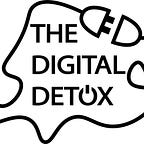The future is female! But wait… which type of female?
So, how are females often represented in the media? There are two main standpoints to this convention: the idyllic modest, quiet woman who possesses no voice, and the oversexualised woman, who is depicted as predominantly white, heterosexual, unrealistically thin and having the right amount of hair in the right amount of places.
We all know that what is shown to us in the media is fake, but does that stop people from obsessing on their image and striving to become more and more like the women on an influencer page? Unfortunately not.
Oh, TikTok. We can’t deny that it has consumed the free time of many, especially during quarantine. Be honest, how many hours have you spent on the app scrolling mindlessly? Be even more honest, how much content have you been getting about losing weight, eating and exercising on your For You page? You watch ONE of those videos and it’s a downward spiral from there.
Being thin VS being healthy?
We’re pretty certain you have heard of “thinspo” posts. Short for “thin inspiration,” it’s a harmful trope encouraging people, and predominantly women, to restrict food intake and do excessive exercise, some of which is not even beneficial to one’s health. The whole idea for popular celebrities, influencers and people with a greater following to promote such unhealthy habits makes people want to hop on the trend, assumably to ‘look’ and ‘feel’ better, which in hindsight it is just to attempt to become thinner and develop an obsession on achieving a flat stomach. This can lead to many issues. The distorted view of your own body leads to potentially developing an eating disorder, an extremely dangerous mental illness which is often looked over. These videos can also be incredibly triggering to those who already have the illness too.
“It’s not worth it…”
““When I initially downloaded TikTok, I saw a lot of really, really negative body image videos,” said Brittani Lancaster, a TikTok body positive activist. “It’s not worth it to keep seeing these posts if it’s worsening your mental health.”” (Kaufman, 2020)
No matter what you’ve been taught, knowing perfectly well the toxicity of such posts, one can often find themselves still diving into that toxic mindset and almost involuntarily, start wanting to try out these “trends,” assumably to “jump on the bandwagon,” or else feel like they belong to the community which puts forth this type of content.
#IWeigh
Actress and body positivity activist, Jameela Jamil, posted an article on her blog one day, which started an entire progressive, influential movement. She had seen what she called, “disastrously damaging” image:
Having grown up suffering from an eating disorder herself, she was furious at the image which subjugated women to the number which shows up on the scale only. Is a number truly the only value to a woman? Why should magazines, popular news reports and social media pages start off a headline with, “Does Kim look 56kg?!? Which weight are You?!?” In what way is it acceptable to judge a person based on kilograms and how much they weigh, or worse yet, how much they LOOK like they weigh? Why should it matter? What value does it bring to one’s life in knowing how much a person weighs? These are all questions Jameela raised as she started her movement.
“Women are subliminally bullied all day by the magazines, the sidebar of shame, social media, and by each other.” (Jamil, 2018)
She took it upon herself to start the movement, “IWeigh” where women follow the phrase with accomplishments of their own, beyond the classification and subjugation of just their weight. Some are mothers, students, highly motivated in life, attained degrees and thriving to their full potential in life.
In her interview with #BUILDseries, Jamil says, “I am not a failure for not having a flat stomach,” which is a statement that should truly become a norm to resonate with. Women should not have to be thinking about their body image all day, but should be thinking about their jobs, their relationships and focusing on growing their happiness to its ultimate. Her narrative is that we should stop focusing so much on body image and deviate from the toxic ‘ideal’ which then becomes considered to be a breath of fresh air to all of society, but especially the woman. Therefore, we start seeing actual representatives of real life.
The future is female… all females; of different shapes, sizes, occupation, gender, sexuality and alike.
References:
Jameela Jamil Tackles Toxic Body Image — Success Resources UK. Success Resources UK. (2018). Retrieved 28 January 2021, from https://successresources.com/uk/jameela-jamil-body-image/.
Jamil, J. (2018). I Weigh [Blog]. Retrieved 21 January 2021, from https://jameelajamil.co.uk/post/171287759245/i-weigh.
Kaufman, S. (2020). ‘It’s not worth it’: Young women on how TikTok has warped their body image. NBC News. Retrieved 21 January 2021, from https://www.nbcnews.com/tech/tech-news/it-s-not-worth-it-young-women-how-tiktok-has-n1234193.
